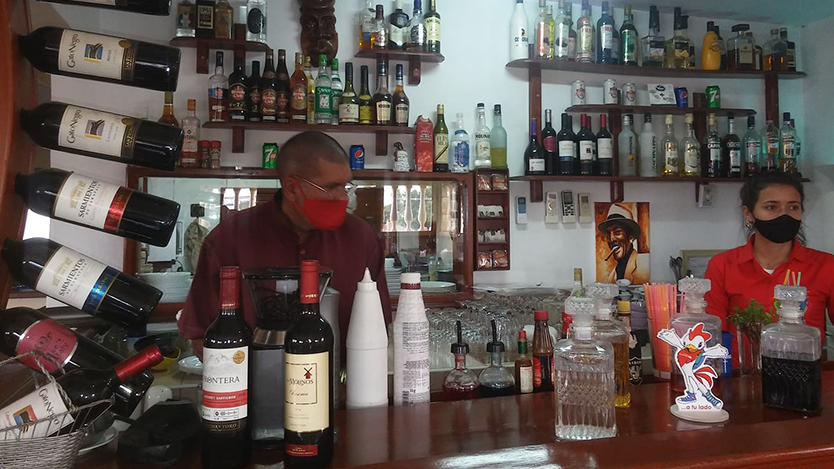
The most recent publications of the Ministry of Economy and Planning, added three new micro, small and medium enterprises (MSMEs) and a non-agricultural cooperative (CNoA) in Ciego de Ávila, with which the province reached 62 of these new actors, just when 3,074 have been approved in the country since the beginning of this process in September 2021.
Of the total in the province, 57 are MSMEs and five CNoAs, although only one of the latter is newly created; the remaining four had already been approved since 2014. The new cooperative is named Palado and is specialized in providing design services.
The province continues to be one of the provinces with the smallest number of this type of actors in Cuba, evidence that entrepreneurs are being cautious when proposing their businesses or that the process presentation-approval-conclusion algorithm does not behave correctly.
Some of this has become known in meetings with representatives of MSMEs in the territory, organized by the Consultancy of the Union of Economists of Cuba and the Directorate of Economy and Planning. In a meeting during the first half of April, the participants summarized the main concerns in six points:
1. Delay in the approval of the request on the platform of up to 30 days without a response.
2. Setback in the process of opening bank accounts.
3. Obstacles in contracting with state companies.
4. Ignorance in the state entities of the legislation on contracting and productive chaining with the new economic actors.
5. Ignorance of the administrative activity and of control and supervision, after the MSMEs have been approved.
6. Accounting activity little strengthened, with staff that is unaware of economic issues and without the hiring of an automated system for these purposes.
Johana Odriozola Guitart herself, Deputy Minister of Economy and Planning, had recognized in January of this year that “there are delays, the terms, misunderstandings, subjective elements are not always met. There are issues that need to be improved, there are procedures that are not yet written. There are ways of doing the institutions that we participate in the process that must be changed, and there are situations, once they are operating, that must be resolved within the current resource limitations”.
The official referred to the short and medium-term future of this sector of the Cuban economy during the VI Forum on SMEs, promoted by the IILA, and identified four major issues to which to pay special attention:
1. Design of financing funds.
2. Achieve linkages with the rest of the economy.
3. Increase business incubators in universities and research centers.
4. Work on public policies on social responsibility, female employment, internationalization, innovation.
Progress is being made on financing funds little by little, taking into account the country's economic-financial situation. For example, the training offered by Popular Save Bank (BPA by its Spanish initials) in Ciego de Ávila to its clients who are owners of MSMEs and local development projects stands out, so that they can apply for microcredits granted by the Microcredits Financer S.A.
Since December 2021, this financial institution has provided small credits in MLC to MSMEs, PDL and TCP, to support the productions and services that have contracted their realization in exports, in the Mariel Special Development Zone and sales through the stores in MLC. A Granma report specified that, "initially, these microcredits will be granted for wholesale purchases in the market, and to make payments to entities authorized to sell in the national territory in these currencies."
However, the linkages with the rest of the economy, specifically with state companies, do not advance as they should due to ignorance, reluctance or bureaucracy. Dofleini S.R.L, a medium-sized private software development company that has launched its Cuban Business and Services Guide, in conjunction with ANEC and Yellow Pages, trusts in paving the way. Through this online platform, the contacts of more than 300,000 economic actors are offered, as well as tenders and job offers.
Ciego de Ávila`s MSMEs in data
According to data from the Directorate of Economy and Planning, at the end of March Ciego de Ávila had thirty proposals pending approval or under review, including the first three state MSMEs, corresponding to the municipality of Bolivia. There, the business units of Fishing and Production of Construction Materials, as well as artisanal clothing, could open the way to this form of management within the Ciego de Ávila state business system.
The first MSME dedicated to accounting, bookkeeping and auditing activities, in addition to tax consulting, is also awaiting confirmation, one of the weaknesses identified in the partial evaluation of the performance of the new actors in the economy, at the national level.
Meanwhile, in the group of 57 approved MSMEs, the most represented continue to be those specialized in construction (13), followed by the activity of restaurant and mobile food service (10), food preparation and conservation (9), and preparation of construction materials (8).
By territories, the main municipality continues to monopolize the bulk of MSMEs (25), followed by Morón and Chambas, with 10 each. With respect to the beginning of March, there is growth in the total and in the number of municipalities, confirming the creation of a small company in Primero de Enero, dedicated to the manufacture of construction materials. Baraguá and Bolivia remain without new actors, but only Baraguá has no pending proposals.
The latest approvals also increased the number of MSMEs whose representative is a woman. Although the gender gap remains, now seven women appear as applicants or holders.
Considering their size, 11 are micro companies, 31 small and 15 are considered medium, due to the scope and number of workers hired. In addition, based on their origin, 33 are TCP retrofits and 23 are newly created. On average, they have 2 partners and 28 employees.
